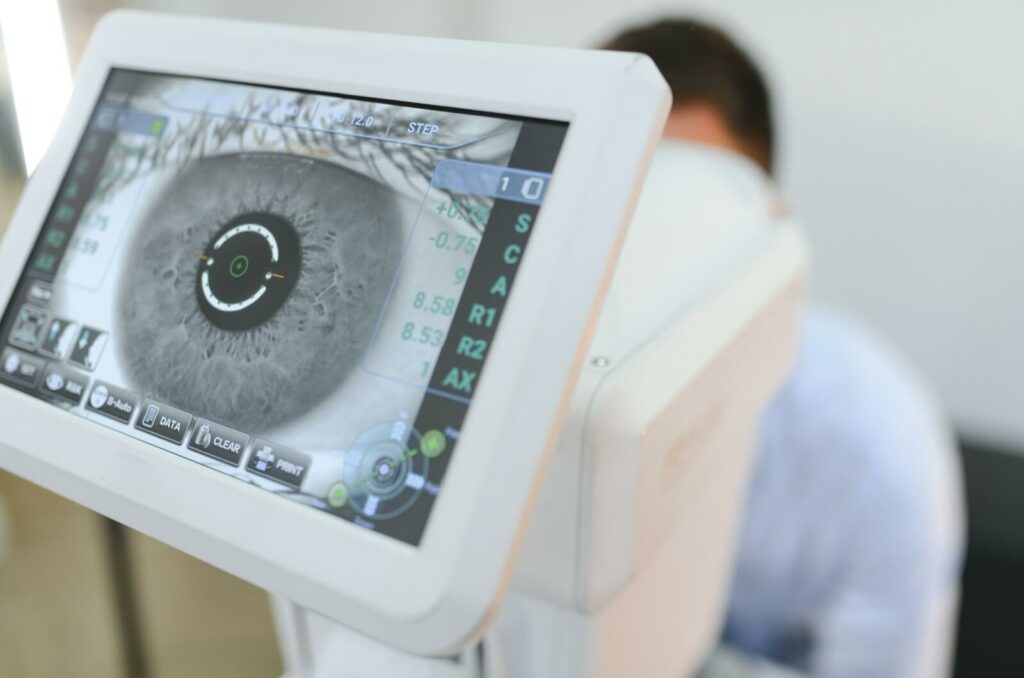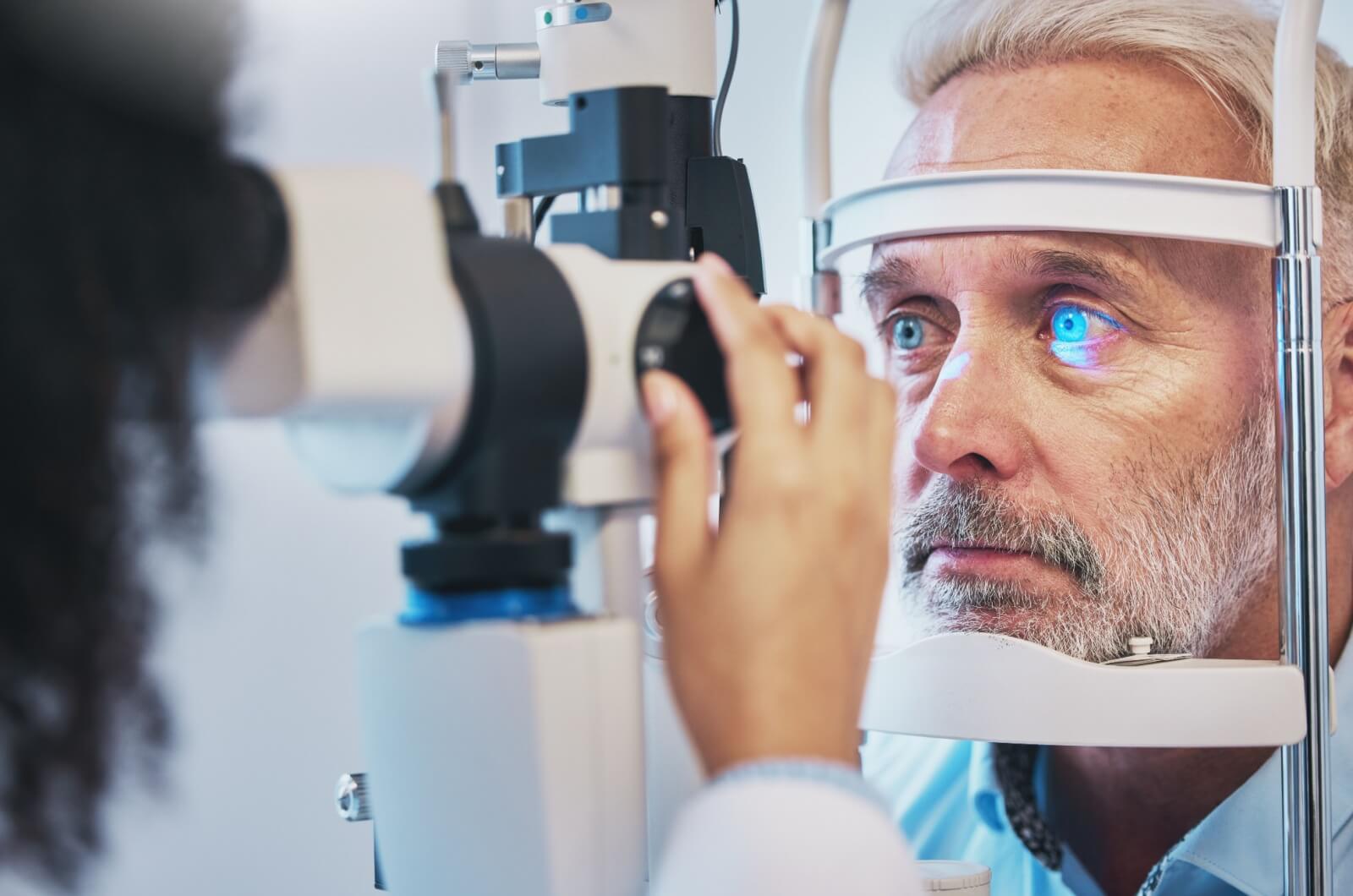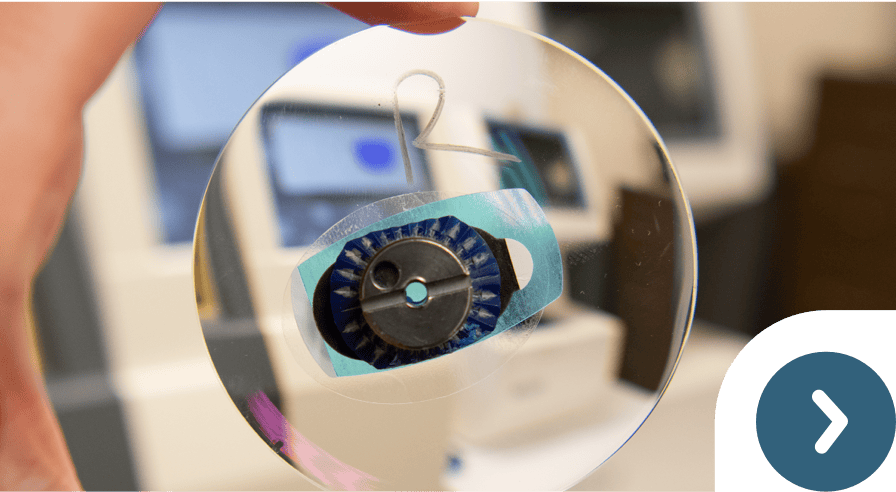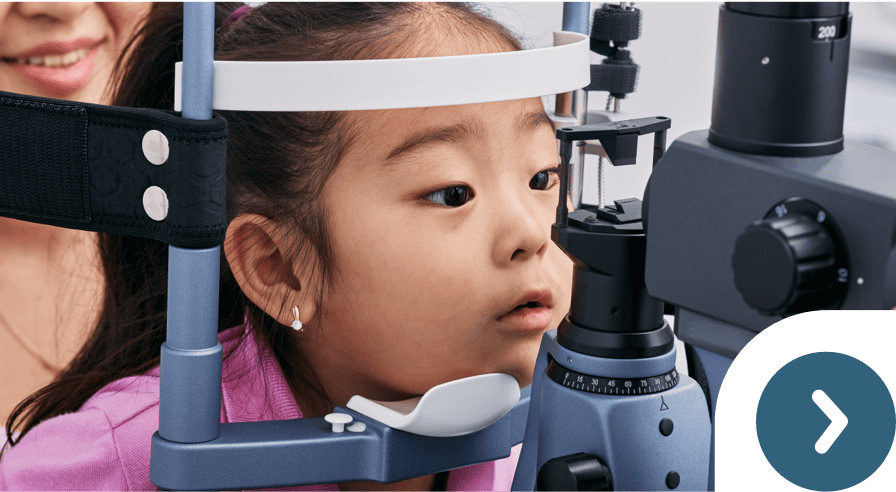For many, an eye exam is a routine check-up that can ensure eye health, but did you know it’s also a powerful tool for detecting diseases? Regular eye exams can reveal much more about your overall health than you might expect.
Today, we’ll explore the various conditions such as diabetes, high blood pressure, high cholesterol, autoimmune disorder, neurological conditions, and cancer that can be identified during an eye exam, offering you peace of mind and a deeper understanding of your health.
Understanding the Power of an Eye Exam
An eye exam isn’t just about determining if you need glasses or contact lenses. It’s also a comprehensive evaluation that can uncover a range of health conditions—often before symptoms become apparent. During an eye exam, an optometrist or ophthalmologist will check for vision problems like myopia, hyperopia, astigmatism, and presbyopia. They will also look for signs of eye diseases such as glaucoma, cataracts, and macular degeneration.
Additionally, eye exams can reveal indicators of other health issues like diabetes, high blood pressure, and even certain types of cancer. This makes routine eye exams an essential part of preventive health care, ensuring that any underlying conditions are detected early and managed effectively.
Other Health Issues Detectable Through Eye Exams
1. Diabetes
One of the most common diseases that can be detected through an eye exam is diabetes. Changes in blood vessels within the retina are early indicators of diabetic retinopathy, a condition that can lead to blindness if untreated. Eye doctors look for swelling, leakage, or abnormal growths in these vessels as signs of diabetes.
2. High Blood Pressure (Hypertension)
Hypertension can cause damage to the blood vessels in your retina, known as hypertensive retinopathy. During an eye exam, an optometrist may spot signs such as narrowed arteries or bleeding and swelling in the back of the eye. Early detection can help manage blood pressure and prevent further complications.
3. High Cholesterol
A comprehensive eye exam can reveal deposits in the blood vessels of your retina, known as plaques, which may indicate high cholesterol. These plaques are often tiny, yellowish deposits that can be seen by an eye care professional during a detailed examination. The presence of these plaques is often an early warning sign, prompting patients to seek further testing and treatment.
Early detection through an eye exam can lead to lifestyle changes, medication, or other interventions to help reduce their risk of heart disease. This underscores the importance of regular eye check-ups not just for vision health, but also for overall cardiovascular health.
4. Autoimmune Disorders
Inflammation in the eye can signal an autoimmune disorder, such as lupus or rheumatoid arthritis, where the body’s immune system mistakenly attacks its own tissues. Symptoms like persistent dry eyes, uveitis (inflammation of the uvea, the middle layer of the eye that includes the iris and surrounding tissues), or scleritis (inflammation of the sclera, the white outer coating of the eye) can prompt further investigation into systemic autoimmune conditions.
These conditions often require a multidisciplinary approach for diagnosis and management, involving ophthalmologists and rheumatologists, to effectively address both the ocular manifestations and the underlying systemic issues.
5. Thyroid Disease
Thyroid eye disease is often associated with hyperthyroidism, particularly Graves’ disease. Eye exams can reveal symptoms such as bulging eyes, dry eyes, or double vision, leading to a diagnosis of thyroid dysfunction.
6. Neurological Disorders
Vision changes can often be an early symptom of neurological disorders. For example, optic nerve swelling (papilledema) might suggest increased intracranial pressure, potentially indicating conditions such as brain tumors or multiple sclerosis.
7. Cancer
Certain types of cancer, such as melanoma, leukemia, and lymphoma, can manifest in the eye. An eye exam might reveal unusual shapes or colors in the retina, prompting further testing and early intervention.

The Importance of Regular Eye Exams
Given the variety of conditions that can be detected through an eye exam, regular check-ups are crucial. Here’s why:
- Early Detection: The eyes can reveal early signs of numerous diseases, such as diabetes and hypertension, allowing for timely intervention and management before these conditions progress to more serious stages.
- Comprehensive Health Checks: Eye exams offer valuable insights into your overall health, often acting as an early alert system to potential systemic issues. Conditions like high blood pressure and high cholesterol can sometimes be detected through changes in the blood vessels of the eyes.
- Prevention of Vision Loss: Regular eye examinations are crucial in preventing vision loss by identifying and managing eye diseases such as glaucoma, macular degeneration, and cataracts at an early stage, thus preserving eyesight and enhancing quality of life.
Ready to Book an Eye Exam?
Eye exams are more than just a vision test; they are a window into your overall health. By maintaining regular appointments with your optometrist, you not only safeguard your vision but also take proactive steps towards preventing and managing potential health issues.
If it’s been a while since your last eye exam, now is a great time to schedule one. Book an appointment with Westmount Optometrists and prioritize your eye health today for a healthier tomorrow!









































